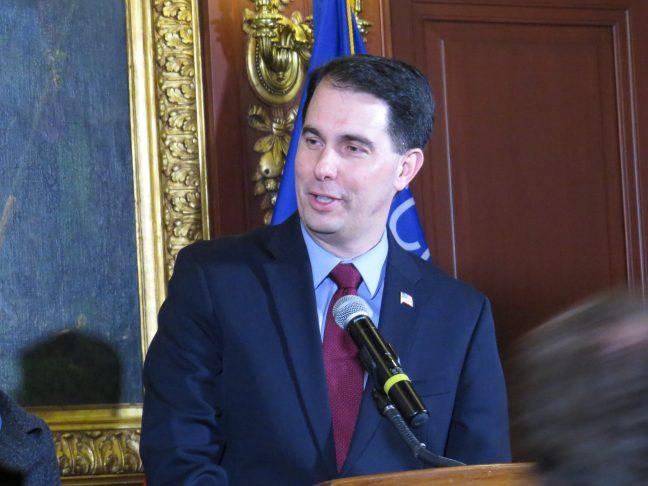After eight years of Gov. Scott Walker, that Gov.-elect Tony Evers pulled off a victory was remarkable. But fundamental change to Wisconsin’s democracy may occur weeks before Evers moves into the governor’s mansion.
In a two-day lame-duck session full of protest, outcry and demonstrations, the Republican-dominated legislature passed multiple bills to reduce the power of the governorship and the office of attorney general. The legislature also passed a measure limiting early voting and approved 82 of Walker’s appointments.
The results of the lame-duck session have been described as blatant disrespect towards the will of Wisconsin voters, a subversion of power and the reaction of sore losers. Most of all, this lame-duck saga is unprecedented — but the debate surrounding the legitimacy of lame-duck sessions is almost as old as the U.S. itself.
Any student who’s taken government in high school remembers Marbury v. Madison, the Supreme Court case that established the principle of judicial review. Though judicial review does not come into play surrounding Wisconsin’s lame-duck session, the situation that produced the court case is eerily similar to the one we find ourselves in now.
The presidential election of 1800 was bitterly contested — sound familiar? President John Adams was denied a second term by Thomas Jefferson, who was for all intents and purposes, his most vitriolic rival. Before Jefferson took office in March 1801, Adams and Congress passed the Judiciary Act of 1801, which added judicial positions, created new courts and granted the president greater power over judicial appointments. Naturally, Adams took advantage of that power to hinder his successor by appointing 42 new justices of the peace and 16 new circuit judges. Though the appointees were approved by the Senate, they still had to be delivered by Secretary of State James Madison — one of Jefferson’s greatest allies. Madison, however, never delivered several commissions, leading William Marbury, one of the appointees, to petition the Supreme Court to mandate that Madison do so.
The ruling by Chief Justice John Marshall was mixed. Marshall ruled it was legal for Adams to make the appointments. However, the portion of the Judiciary Act that had established the new courts was deemed unconstitutional because it was seen to gave the judicial branch excessive power over executive actions. Therefore, Marshall concluded he did not have the constitutional authority to mandate that Jefferson’s administration follow through on Adams’ appointments. Marbury v. Madison created a paradigm, in that if a candidate loses — even if there is a transition period before power transfers — the successor should have the right to execute the policy that best aligns with how the electorate voted.
Nearly 218 years later, the debate surrounding Marbury v. Madison rages on in Wisconsin. But the fight is not over until Walker signs the lame-duck legislation. Walker has indicated his support for the legislation, but there hasn’t been any word on when, or if, the bills will be signed. Evers is doubtful of Walker’s veto and has even threatened litigation if the bills were to pass.
Though Marbury v. Madison set a precedent, it could have gone further. Marshall could have said it is wrong for a politician on his way out of office to impose lasting decisions on the very people who have recently rejected him. If he had, Wisconsin may not be in this mess. But history is living — Walker still has time to set a precedent in his final weeks as governor. Walker can still leave his imprint — but he can leave the right one by vetoing the lame-duck legislation and respecting the precedents democracy is built upon.
Governor Walker, do not let your eight years be defined by such a controversial and subversive group of bills. Remember John Marshall, remember what Wisconsin’s democracy is fortified by and make the correct decision — veto these bills.
Abigail Steinberg (asteinberg@badgerherald.com) is a sophomore majoring in political science and intending to major in journalism.


